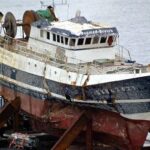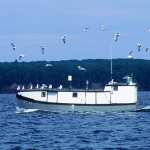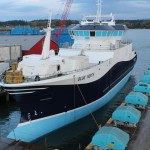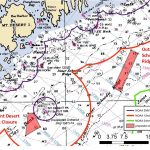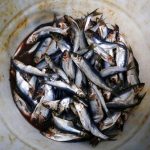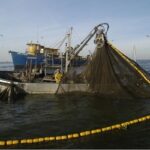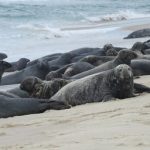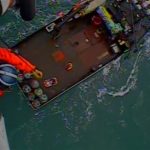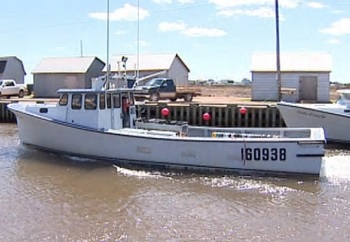Tag Archives: Michigan
Bay Port Fishing Company: A 128-year legacy in Huron County
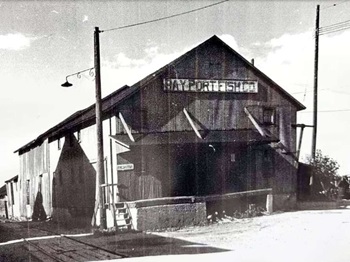 For the last 128 years, the Bay Port Fishing Company has been on the mountaintop, withstood troubling times, and still provided fresh fish year-round to the residents of Huron County and beyond. The Bay Port Fishing Company was established in 1895 off the dock of Bay Port between Lake Huron and Saginaw Bay, by W.J. Orr and W.H. Wallace. During the early years, fisherman used sailboats to make runs, placing and tending their nets. During the winter months, they chopped holes through the ice to continue fishing and preserving the catches in salt and packed them up in kegs. Photos, more, >>click to read<< 10:12
For the last 128 years, the Bay Port Fishing Company has been on the mountaintop, withstood troubling times, and still provided fresh fish year-round to the residents of Huron County and beyond. The Bay Port Fishing Company was established in 1895 off the dock of Bay Port between Lake Huron and Saginaw Bay, by W.J. Orr and W.H. Wallace. During the early years, fisherman used sailboats to make runs, placing and tending their nets. During the winter months, they chopped holes through the ice to continue fishing and preserving the catches in salt and packed them up in kegs. Photos, more, >>click to read<< 10:12
Soo Tribe says it will appeal Great Lakes commercial fishing deal
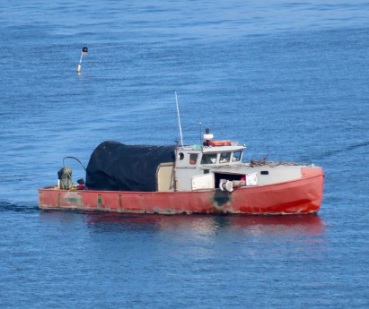 The Sault Ste. Marie Tribe of Chippewa Indians says it will appeal an agreement struck between four other tribes, federal regulators and state of Michigan to govern Great Lakes commercial and sport fishing. The tribe said Monday, Oct. 9 that it would appeal the agreement, which was approved by a federal judge on Aug. 24, with the U.S. Sixth Circuit court of appeals by Oct. 23. The tribe did not join the agreement, which was reached in December between the state and federal governments, and the Bay Mills Indian Community, the Grand Traverse Band of Ottawa and Chippewa, the Little River Band of Ottawa and Little Traverse Bay Bands of Odawa. The agreement divvies up fishing rights in parts of lakes Michigan, Huron and Superior; extending until 2047 a longstanding regulatory framework which has been under negotiation since it expired in 2020. The deal covers Great Lakes that fall within Michigan waters in which the tribes reserve fishing rights per the 1836 Treaty of Washington. >>click to read<< 18:29
The Sault Ste. Marie Tribe of Chippewa Indians says it will appeal an agreement struck between four other tribes, federal regulators and state of Michigan to govern Great Lakes commercial and sport fishing. The tribe said Monday, Oct. 9 that it would appeal the agreement, which was approved by a federal judge on Aug. 24, with the U.S. Sixth Circuit court of appeals by Oct. 23. The tribe did not join the agreement, which was reached in December between the state and federal governments, and the Bay Mills Indian Community, the Grand Traverse Band of Ottawa and Chippewa, the Little River Band of Ottawa and Little Traverse Bay Bands of Odawa. The agreement divvies up fishing rights in parts of lakes Michigan, Huron and Superior; extending until 2047 a longstanding regulatory framework which has been under negotiation since it expired in 2020. The deal covers Great Lakes that fall within Michigan waters in which the tribes reserve fishing rights per the 1836 Treaty of Washington. >>click to read<< 18:29
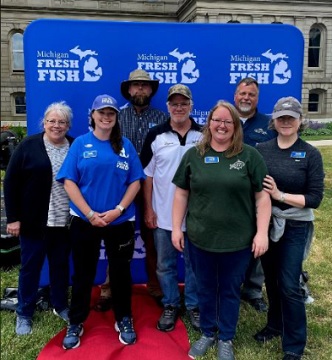
Bay Port Fish Company part of first Fresh Fish Expo in Lansing
Legislators and residents were gathered on the lawn of the capitol building in Lansing for the first Fresh Fish Expo, where the commercial fishing companies in Michigan provided education on the freshwater resource and were cooking up fish for those in attendance on June 13. The Bay Port Fish Company was present and brought over plenty of fish for the occasion. The company is one of eight commercial fishing license holders in the state. “A lot of people came that didn’t know about commercial fishing,” said Lakon Williams, co-owner of Bay Port Fish Company. “They were able to meet the people who provide the fish in the state and have conversations with them.” 9 photos, >click to read< 17:55
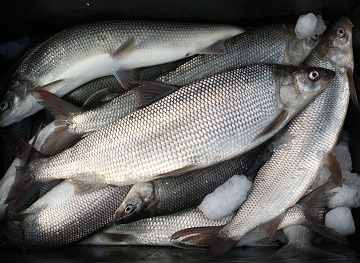
The Great Lakes-Iceland connection through the 100% Whitefish effort
While Great Lakes fish populations are constantly in a state of flux, one species has declined precipitously in the last decade: lake whitefish. But Great Lakes leaders and fisheries managers are looking ahead in planning to do more with less. And in the case of whitefish, a lot more. The search for a way to preserve an industry with a shrinking natural resource brought the Iceland Ocean Cluster (IOC) into focus. IOC was founded by Thor Sigfusson in 2012 with a dozen companies on-site. There are now 70. So, what is it? And could it work as a model for the Great Lakes’ new whitefish initiative? >click to read< 17:09
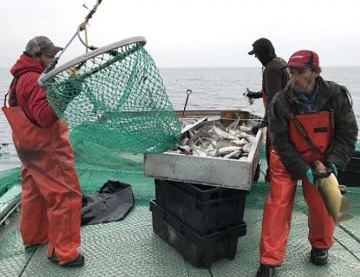
Inland Fisheries: Michigan Fish Producers Association says it’s settled lawsuit with DNR
The Michigan Fish Producers association has said its class-action lawsuit against the state Department of Natural Resources has reached a settlement. Details of the settlement have yet to be made public. The fish producers association sued the DNR over regulations that producers claimed interfered with their livelihoods. Michael Perry is an attorney who represents the association. Although the settlement amount is still undisclosed, Perry said commercial fishers are satisfied with it. “The association’s board of directors, members who participated in that were pleased with the result of the mediation,” said Perry. >click to read< 16:23
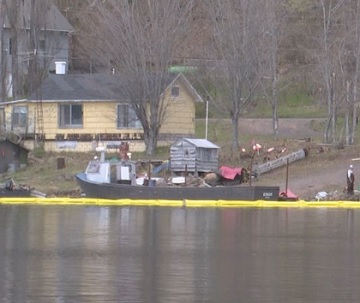
Keweenaw County Sheriff’s Office continues search for fuel theft suspects
The Keweenaw County Sheriff’s Department thinks high fuel costs may have motivated someone to siphon gas from a commercial fishing operation last week. On Thursday, a gas spill occurred on the eastern shore of Lac La Belle. Deputies from the Keweenaw County Sheriff’s Department responded to the scene. “When we got there we discovered approximately 20 to 30 gallons of fuel had spilled into Lac La Belle,” Keweenaw County Sheriff Curt Pennala said. Pennala said suspects snipped the fuel lines of a mostly empty 275-gallon fuel tank attached to a parked commercial fishing boat. According to Pennala, they managed to escape from the scene with some fuel, while the rest leaked into the lake. Pennala said he suspects a potential motive may be related to continued high gas prices. >click to read< 21:41 stolen fuel
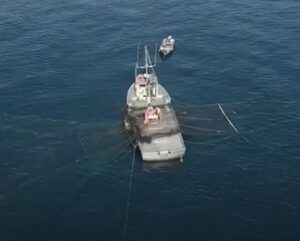
Inland Fisheries: A big fight in Lansing over fishing rules on the Great Lakes
Dana Serafin still hauls in 20,000-pound boatloads of whitefish to supply regional restaurants and markets, Native whitefish, the main livelihood for Serafin and other Great Lakes commercial fishermen, have been in decline for years amid changes to the food web, replaced in Serafin’s nets by healthier populations of walleye and lake trout that he’s not allowed to keep. Chinook salmon, once a favorite of recreational anglers on lakes Michigan and Huron, have also plummeted in Lake Michigan, and all but disappeared from Lake Huron. Battles are brewing over fishing rights from recreational, commercial, Native American, and environmental group meddling. Video, >click to read< 13:41
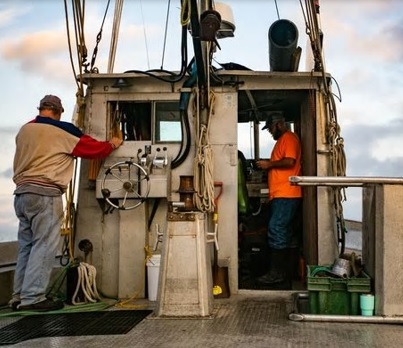
Big news for a major Michigan industry: commercial fishing.
Changes to the rulebook in January had fisheries warning the fresh catch may soon come from Canada. The DNR is now walking back those rules, requiring fishermen to cast their nets in water under 80 feet and suspending part of the whitefish season,,, “Everyone’s ecstatic.” A reversal from the DNR, effectively lifting the depth and seasonal restrictions the Williams’ and other commercial fisheries argue had upended their ability to make a living, means it’s now back to business as usual. >click to read< 07:42
Michigan House Bills Ban Commercial Perch Fishing on Great Lakes – Lakon Williams of the Bay Port Fish Co. expressed her concern. The company nets whitefish and perch in Saginaw Bay and Lake Huron. >click to read<
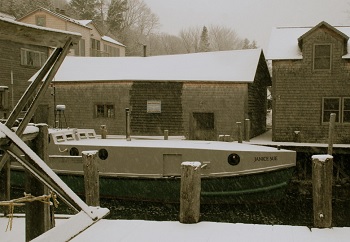
New restrictions on commercial fishing amount to ‘extortion’
In a scathing letter, several Michigan legislators urged the state Department of Natural Resources to renew all commercial fishing licenses and permits from 2020. That’s after the DNR announced new restrictions that close the fishery for part of the year and limit the depth where fishers can catch whitefish to 80 feet. “The whole industry is out of business at that 80 feet,” Dennis VanLandschoot, of VanLandschoot & Sons Fish Market in Munising,,, These changes would not affect tribal fishers, whose fishing rights are guaranteed under federal treaty. >click to read< 14:25
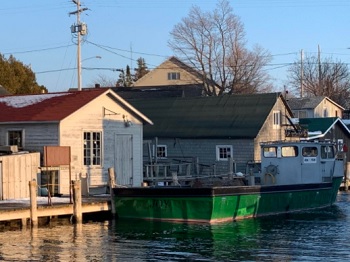
Gloves Come Off In Fight Over Commercial Fishing In Michigan
The few commercial fishing businesses that remain in Michigan are suing the state’s Department of Natural Resources over changes to industry rules. They say the new provisions will make commercial fishing all but impossible. The lawsuit, filed by the Michigan Fish Producers Association, claims the actions of the state threaten to deprive its members and their employees of their livelihoods. “Here in Leland, you can’t fish,” says Joel Petersen, the last state-licensed fishermen working out of Fishtown. >click to read< 09:35
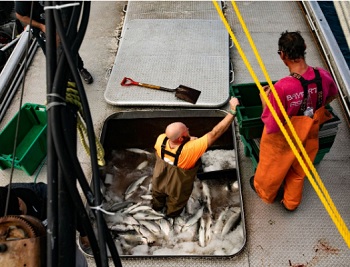
Michigan’s dying commercial fishing industry fears state fishery bills will be final nail in the coffin
The once vibrant commercial fishing industry in Michigan has dwindled down from thousands of businesses to just 13 full-time fisheries. And those that are left are afraid legislation in a state Senate committee could be the end of the industry all together. That their mom-and-pop style operations would move out of the Great Lakes for good, and leave the door open only for large, investor-style corporations to take over the industry. This is all part of an ongoing battle in the Great Lakes between commercial fishing and sport fishing. >click to read< 15:02
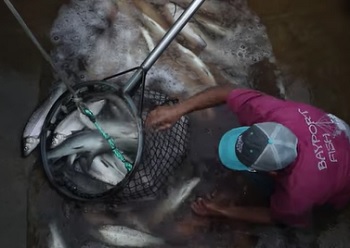
Michigan House Bills Ban Commercial Perch Fishing on Great Lakes
Lakon Williams of the Bay Port Fish Co. expressed her concern. The company nets whitefish and perch in Saginaw Bay and Lake Huron. “I knew that that was going to happen, unfortunately we’ve been trying since the summertime to get through to the House of Representatives that this isn’t what we want and this isn’t what we need, and that this will put us out of business. It’s just kind of fallen on deaf ears,” she said. Video, >click to read< 10:16
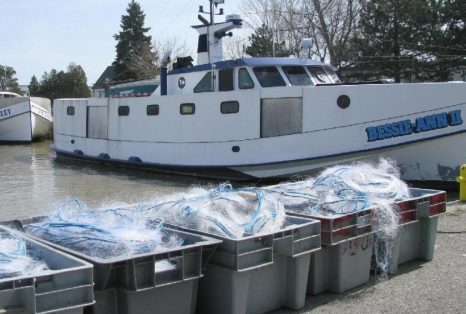
Lake Erie walleye quotas up but ‘devastating’ drop for perch, says commercial fishery
The allowable catch limit for yellow perch in Lake Erie has dropped by as much as 32 per cent for the part of the lake near Chatham-Kent, Tim Tiessen, president of the Ontario Commercial Fisheries’ Association, said Monday. The quota is dropping by about 20 per cent for commercial fishing boats operating south of Essex County.,,, “That’s going to be hard for the fisherman,” On the plus side, the quota for walleye is going up about 20 per cent across Lake Erie. The binational Lake Erie Committee of fishery managers from Michigan, New York, Ohio, Pennsylvania and Ontario recently decided the total allowable catch limits,,, >click to read<16:43
Michigan state officials recommend against Great Lakes fish farms
 Three state agencies released a report recommending Michigan not pursue commercial fish farming operations in the Great Lakes because of several environmental and economic risks. The state departments of agriculture and rural development, environmental quality and natural resources released a report Wednesday on the controversial topic and proposals regarding net-pen aquaculture — a practice that involves raising fish in underwater nets, or solid structure cages serving as pens, also known as fish farming — in northern Lakes Huron and Michigan. The agencies concluded the report by urging the state not to pursue commercial net-pen aquaculture in the Great Lakes at this time. Read the rest here 11:31
Three state agencies released a report recommending Michigan not pursue commercial fish farming operations in the Great Lakes because of several environmental and economic risks. The state departments of agriculture and rural development, environmental quality and natural resources released a report Wednesday on the controversial topic and proposals regarding net-pen aquaculture — a practice that involves raising fish in underwater nets, or solid structure cages serving as pens, also known as fish farming — in northern Lakes Huron and Michigan. The agencies concluded the report by urging the state not to pursue commercial net-pen aquaculture in the Great Lakes at this time. Read the rest here 11:31
Michigan Considers Controversial Commercial Net-Pen Aquaculture in Huron and Michigan
 Several State agencies are looking at proposals to allow commercial net-pen aquaculture on the Great Lakes. The practice is controversial because of environmental concerns. WDET’s Amy Miller spoke with Tammy Newcomb; Senior Policy Advisor for the Department of Natural Resources. She says Ontario has allowed a few net-pens near Georgian Bay and now there are two Michigan proposals. This week the State is holding two public hearings on the two Great Lakes net-pen aquaculture proposals. Listen to the report here 08:29
Several State agencies are looking at proposals to allow commercial net-pen aquaculture on the Great Lakes. The practice is controversial because of environmental concerns. WDET’s Amy Miller spoke with Tammy Newcomb; Senior Policy Advisor for the Department of Natural Resources. She says Ontario has allowed a few net-pens near Georgian Bay and now there are two Michigan proposals. This week the State is holding two public hearings on the two Great Lakes net-pen aquaculture proposals. Listen to the report here 08:29
New England offshore wind planning offers lessons for Great Lakes
When Scandia, a Norwegian wind company, announced its plans to install 200 turbines in Lake Michigan four miles from the tourist town of Ludington, Michigan, in 2009, they likely didn’t anticipate the controversy that would erupt. A similar brouhaha unfolded over the past decade in Nantucket Sound, off the southern coast of Cape Cod, over a proposed 468 MW wind farm known as Cape Wind. Residents of the area spent nine years fighting the project before the Interior Department approved it in 2010. Conservationists have their own set of what-ifs, as do commercial fishers. A systematic mapping approach could help them meet their goals as well, said Sally McGee, who directs the Northeast Marine Program for the Nature Conservancy and serves on the New England Fishery Management Council, the major regional planning body for the fishing industry. Read more here

































